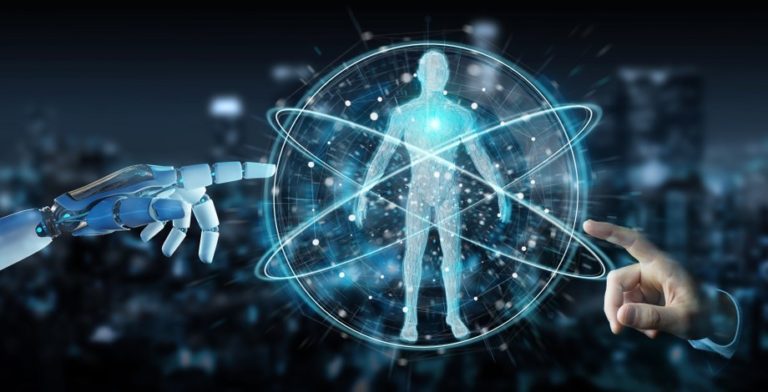Blog

What are the applications of AI in the healthcare sector?
Artificial Intelligence is the intelligence shown by machines that can be helpful to perform several tasks using sentiment analysis and Natural Language Processing (NLP). This technology allows machines to learn on their own from past data and the given information, make sense of it, and use this information to do various business tasks. AI is a superset of Machine Learning and Deep Learning, and these technologies have their own sets of responsibilities while equipping machines.
Role of AI in Healthcare
AI is being leveraged to deploy efficient and precise inventions that will help take care of patients suffering from these diseases and hopefully find a cure for them. AI provides several advantages over traditional methods of analytics and making clinical decisions. AI algorithms make the systems more precise as they get the opportunity to understand training data, which furthers helps humans get unprecedented insights into treatment variability, care processes, diagnostics, and patient results.
Pros and Cons of Artificial Intelligence in Healthcare
While there are several benefits of this technology in the field of healthcare, it has some flaws as well
Pros | Cons |
Improved diagnosis | Complications in learning AI |
Serves rural communities better | A difficult change to adapt to |
Better clinical decisions | Requires human assistance |
Streamlines several processes | Requires the implementation of the correct AI platform |
What are the applications of artificial intelligence systems in healthcare?
1. Detect signs of diabetic retinopathy
AI diagnostic system has been developed to autonomously analyzes images of the retina for signs of diabetic retinopathy.
2. Breast density via mammography
Monitor breast density via mammography to support accurate decisions in breast cancer screening.
The technology uses AI to assess breast density in order to identify patients that may experience reduced sensitivity to digital mammography due to dense breast tissue.
3. Support in Clinical Decisions
The assistance of Natural Language Processing (NLP) makes it more convenient for doctors to narrow down all relevant information from patient reports.
Artificial Intelligence holds the ability to store and process large sets of data, which can provide knowledge databases and facilitate examination and recommendation individually for each patient, thus helping to enhance clinical decision support.
4. Enhance Primary Care and Triage through Chatbots
Artificial Intelligence assists in enabling smooth flow and automation of primary care, allowing doctors to stress over more crucial and dire cases.
Saving money on avoidable trips to the doctor, patients can benefit from medical chatbots, which is an AI-powered service, incorporated with smart algorithms that provide patients with instant answers to all their health-related queries and concerns while also guiding them on how to deal with any potential problems.
5. Robotic Surgeries
AI and collaborative robots have revolutionized surgeries in terms of their speed, and depth while making delicate incisions. Since robots don’t get tired, the issue of fatigue in the middle of lengthy and crucial procedures is eliminated.
AI machines are capable of employing data from past operations to develop new surgical methods. The preciseness of these machines reduces the possibility of tremors or any unintended or accidental movements during the surgeries.
6. Virtual nursing assistants
AI systems facilitate virtual nursing assistants that can perform a range of tasks from conversing with patients to directing them to the best and effective care unit. Many AI-powered applications of virtual nursing assistants presently enable more regular interactions between patients and care providers between office visits to avoid any unnecessary hospital visits. Also there is a system can even facilitate wellness checks through voice and AI.
7. Aiding in the accurate diagnosis
AI has the capacity to surpass human doctors and help them detect, predict, and diagnose diseases more accurately and at a faster rate. Likewise, AI algorithms have proved to be not only accurate and precise at specialty-level diagnostics, but also cost-effective in terms of detecting diabetic retinopathy.
Recent Posts
Archives
- December 2024
- November 2024
- October 2024
- September 2024
- August 2024
- April 2024
- February 2024
- January 2024
- April 2022
- November 2021
- August 2021
- May 2021
- April 2021
- March 2021
- February 2021
- December 2020
- November 2020
- October 2020
- July 2020
- April 2020
- December 2019
- October 2019
- August 2019
- July 2019
- June 2019
- April 2019

